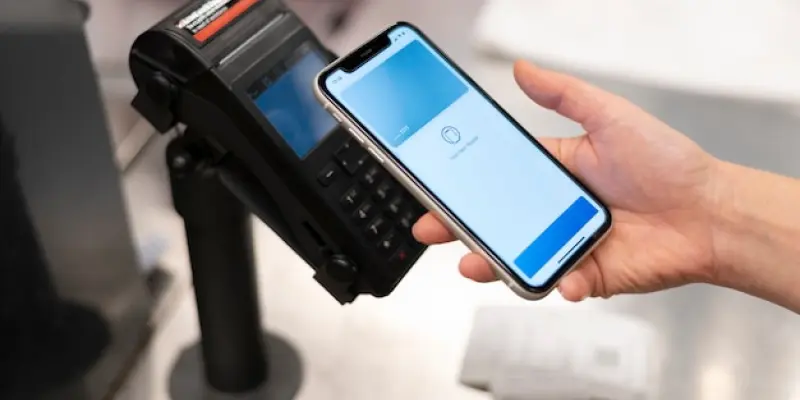In an era where seamless and efficient payment processing is paramount for businesses, Mollie’s latest venture introduces Apple’s Tap to Pay on iPhone for its UK customers. This exciting development follows previous launches in France, the Netherlands, and Germany, signaling Mollie’s commitment to revolutionizing the digital payment landscape across Europe. By simplifying the payment process and removing the need for additional hardware to accept contactless payments, Mollie aims to empower UK businesses with a more convenient and streamlined solution.
Seamless Activation and Enhanced Flexibility
No Extra Hardware Requirements
With the integration of Apple’s Tap to Pay, businesses can now accept contactless payments without the need for additional hardware, reducing costs and operational complexities. This includes payments through digital wallets, Apple Pay, and credit or debit cards, providing a wide array of options for customers. Dave Smallwood, UK Managing Director of Mollie, emphasized that this move aligns with the company’s mission to offer a seamless checkout experience and relevant payment methods tailored to meet the diverse needs of businesses.
The elimination of extra hardware not only makes it easier for businesses to adopt this technology but also allows them to remain agile and flexible in their operations. By leveraging NFC technology embedded in iPhones, businesses can transform their smartphones into powerful payment processors, capable of handling transactions swiftly and securely. This advancement enables businesses of all sizes to engage in cashless transactions without the need for investment in additional physical devices, making it an attractive option for small businesses and startups with limited resources.
Activation and User Experience
One of the primary benefits of Mollie’s Tap to Pay integration is its seamless activation process. Businesses can get started quickly and easily, without the need for complicated installations or extensive training. This simplicity ensures that merchants can focus on providing excellent service to their customers rather than dealing with technical challenges. The user experience is greatly enhanced, as customers can enjoy faster checkout experiences, reducing wait times and improving overall satisfaction.
Moreover, the ability to accept payments from various sources, including digital wallets, Apple Pay, and traditional credit or debit cards, caters to the growing preference for diverse payment methods among consumers. This flexibility not only improves customer convenience but also positions businesses to adapt to evolving market trends and consumer behavior. In a competitive landscape, offering multiple payment options can be a significant differentiator, helping merchants attract and retain a broader customer base.
Enhancing the Financial Ecosystem
Supporting Businesses of All Sizes
Mollie’s integration of Apple’s Tap to Pay also aims to reduce barriers to payment acceptance, making it easier for businesses of all sizes to join the digital economy. Whether it’s a small local shop or a larger enterprise, the ability to accept contactless payments without additional hardware is a game-changer. This initiative supports financial inclusion by enabling even the smallest businesses to offer modern payment methods, fostering economic growth and participation in a global digital economy.
The broader adoption of digital wallets and other contactless payment solutions is a trend seen across various payment providers. Companies like Square, Adyen, and Worldpay have similarly embraced digital wallets to promote secure transactions and support mobile-first, cashless ecosystems within the fintech space. Other providers, including Stripe, Klarna, and PayPal, are continually enhancing their mobile transaction capabilities to drive financial inclusion and enable businesses and individuals to accept digital payments seamlessly.
Secure and Cashless Transactions
Security and privacy are paramount in today’s digital landscape, and Apple’s Tap to Pay on iPhone is designed to address these concerns. Transactions are secured by the same technology that protects Apple Pay, ensuring that customer data remains private and secure. This robust security framework is complemented by faster checkout experiences, which not only enhance customer satisfaction but also reduce the likelihood of errors and fraud.
The incorporation of secure, cashless transaction methods is pivotal in fostering broader participation in the digital economy. By adopting such technologies, businesses can offer a safer and more efficient payment experience, attracting a wider audience and building trust with their customers. Furthermore, the move towards cashless transactions aligns with global trends, promoting a more sustainable and efficient financial ecosystem.
The Future of Digital Payments
Economic Growth and Financial Inclusion
Mobile-first transactions, such as Tap to Pay on iPhone, exemplify the future of digital payments by enhancing access to secure and cashless transactions. These advancements not only improve the checkout experience for consumers but also promote broader financial inclusion and economic growth. By enabling businesses of all sizes to accept digital payments without additional hardware, Mollie is driving a significant shift towards a more inclusive and accessible financial landscape.
The integration of digital payment solutions across Europe underscores the importance of innovation in the fintech sector. As more businesses adopt mobile-first payment methods, the digital economy continues to expand, offering new opportunities for growth and development. This shift towards digital payments not only benefits businesses and consumers but also contributes to a more resilient and adaptable financial ecosystem.
Mollie’s Role in Advancing Digital Payments
In a time when smooth and efficient payment processing is critical for businesses, Mollie has introduced Apple’s Tap to Pay on iPhone for its customers in the UK. This exciting innovation follows previous launches of the service in France, the Netherlands, and Germany. It highlights Mollie’s ongoing commitment to transforming the digital payment landscape throughout Europe. By simplifying the payment process, Mollie eliminates the need for extra hardware to accept contactless payments, which makes transactions more convenient and efficient. This development is aimed at empowering UK businesses with a more streamlined and user-friendly payment solution, helping them keep up with the fast-paced, competitive market. With Mollie’s new service, businesses that previously might have needed special card readers or other devices can now accept payments directly through their iPhones. This not only reduces costs but also enhances the overall customer experience, fostering a smoother transactional process and potentially increasing consumer satisfaction and loyalty.

